On the value of taking a non-traditional path
Prelude
Robert Beatty is a multi-disciplinary artist and musician based in Lexington, Kentucky. He is known primarily for his prolific work in the field of contemporary album cover artwork for both underground and mainstream artists, designing well over 100 record covers for the likes of Tame Impala, Kesha, The Flaming Lips, Oneohtrix Point Never, The Weeknd, and countless others. Beatty has been a member of the bands Hair Police and Burning Star Core and has recorded and performed solo under the names Three Legged Race and Ed Sunspot. His illustration work has appeared in publications as diverse as Lucky Peach, Surfer Magazine, Wired, The New Yorker, The Oxford American, The New Republic, and the New York Times.
Conversation
On the value of taking a non-traditional path
Multi-disciplinary artist and musician Robert Beatty discusses how limitations can be useful, what he learned from growing up in relative isolation, when collaboration doesn't work, and why it's worth getting things wrong.
As told to Jeffrey Silverstein, 2618 words.
Tags: Music, Art, Design, Beginnings, Independence, Multi-tasking, Success, Day jobs.
How was art/music reaching you as a pre-internet, indoor kid in Kentucky?
Cable TV was huge back then, in the early ’90s. It was a window to the outside world. TV was a lot weirder, too. I remember USA Up All Night where they would show strange B movies. 120 Minutes on MTV was huge, too.
That was the starting point, but radio was also big. I was a member of the Weird Al Yankovic fan club. Through that I found out about the Dr. Demento Show, which led me to Harry Partch and The Residents and Frank Zappa.
Were these interests self-driven?
It was me and my best friend, Trevor Tremaine, who is also in Hair Police. We met in sixth grade and had mutual interests. We liked to draw and make weird comics together. Trevor’s dad was a jazz bassist, played in a lot of bands around town, and was the audio engineer at the local PBS station. My family was not musically inclined. I didn’t grow up with anything other than country music on the radio. I would record Dr. Demento or take a cassette over to his house and show him whatever I found. It was always about trying to find the weirdest stuff. I used to carry a piece of paper in my wallet that had a list of bands. When I went to a record store or bookstore I would try to find them. A lot of times you’d end up buying the worst album by a band because you only knew their name, not which albums were supposed to be good.
There was an element of risk.
For sure. You’d spend 15 bucks of what little money that you had on a CD that sucks, then have to try to like it.
It’s a way to start to develop taste.
You have more time to gestate. You get one record by a band and that’s all you have until two years later when you find their next one. The way I research subjects I’m interested in is as much a part of my work as actually making things. It’s a huge part of how I’ve ended up doing what I do. It’s very much a byproduct of that weird isolated upbringing.
You have a penchant for used gear. Things others might discard.
I didn’t have a ton of money growing up. Recently I’m able to live comfortably because I’ve been making money off of my art. I feel guilty about spending it, so I don’t want to buy fancy gear. My mellotron is the first piece of gear that I’ve bought in a long time.
Hair Police used modified Casios, which I discovered early on. I was in fifth or sixth grade when I started taking them apart. The first thing I opened up was a bike radio with a horn. If you touched the insides, it would change the pitch. Basically a crude synthesizer. My mom did a lot of crafts—she had a wood burner that I used as a soldering iron. From there it was anything I got at a thrift store. I would try to rewire it or use it in the wrong way. For a long time I used an old hearing test machine that happened to show up at a consignment shop.
I’m not going to lie and say I wouldn’t have loved to be able to buy a synthesizer for $100 like you can now. I would’ve loved that, but there’s something to limiting yourself, focusing on one thing and learning it from the inside out, instead of immersing yourself in everything you can find. It’s like only listening to that one CD, instead of accessing an entire catalog at the click of a button. There’s something about the growth it enables that’s hard to come by these days.
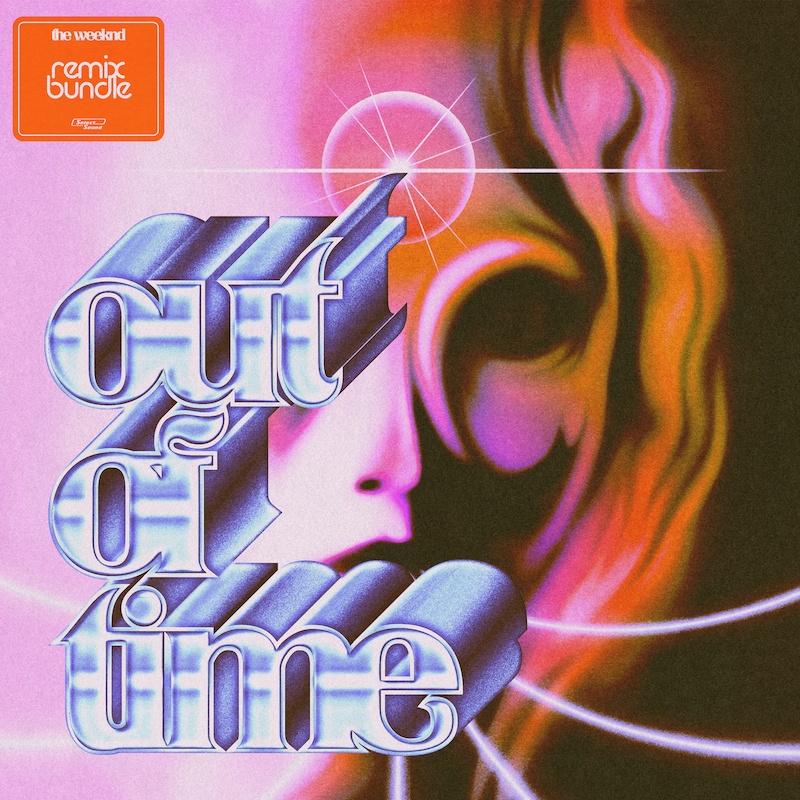
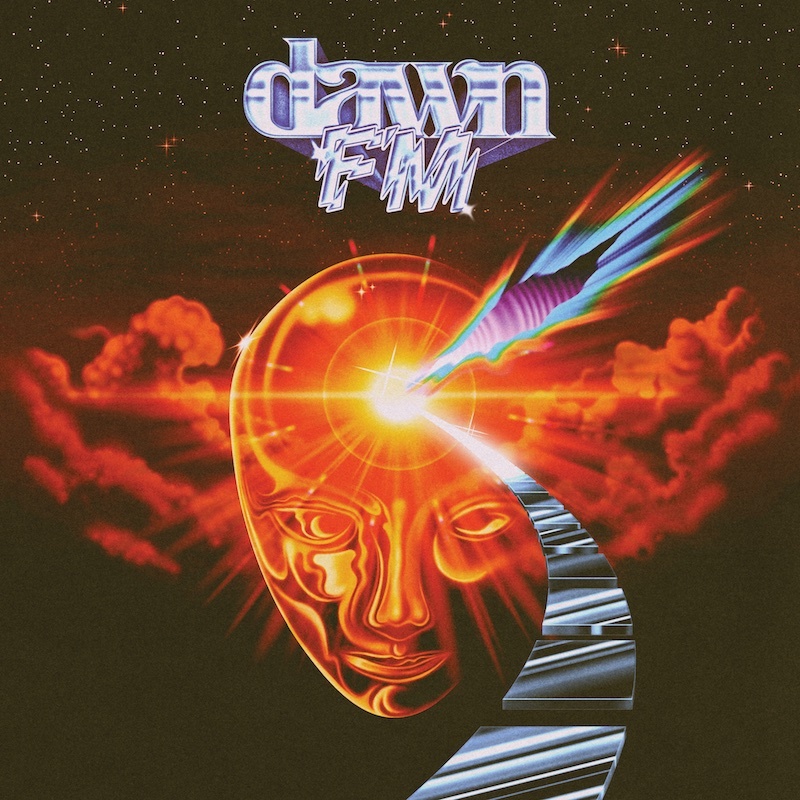
What has having a non-traditional path afforded you?
It’s allowed me to develop. I made a lot of bad stuff for a long time. Now everybody makes bad stuff, but they put it on the internet and everybody sees it. It’s not like I was a hermit or anything, but the way that I worked was almost ascetic, this accidental devotion to something without knowing it. I had one synthesizer for 15 years. My computer is a fucking 12 year old PC. I actually bought a new computer, but haven’t done anything with it yet because I don’t want to move on.
That goes to not wanting to frivolously spend money on something I don’t need. There’s this whole mindset where social media forces people to feel they have to be the absolute best at something to be able to do it. So much of what inspires me is people doing things the wrong way, people doing things poorly, things that don’t land the way their creator wanted them to. This whole aim for perfection in everything, that says you need the right piece of gear, the right plugins, is antithetical to the way I ended up where I am.
If I had had a nice computer and fancy gear when I was in my twenties, or if I had gone to college, I don’t think I would’ve ended up here. It plays into the hustle thing too. Everything gets instantly commodified because of social media. Everybody thinks whatever they like doing, they have to turn it into a job. Working shitty jobs sucks, but you learn a lot doing it.
You worked as a janitor for a spell?
I was a janitor at a truck stop for four or five years. After that, between touring with Hair Police, I was doing odd construction and renovation for seven or eight years with a couple friends that were carpenters. I was totally broke, but it was a choice. I thought if I get a real job, I’m not going to be able to tour.
I don’t blame anybody for wanting to make money doing what they want to do. I don’t necessarily agree that you have to pay your dues, but there’s something to working at something for a long time before you have any real success with it. By the time I did anything that was well noticed, I’d probably been doing this for 12 or 15 years.
People associate your album art with a specific style. You’re at a place now where you’re trying to step outside of that. How’s it going?
I have been playing music a lot more, something that fell by the wayside with getting so busy with the artwork. That’s been a nice way to completely change gears, to play and not have to worry about making something. I’m as burnt out now as I’ve ever been. On top of COVID and not knowing how things were going to go the past couple years, I worked more than I should have. Now I’m financially stable enough where I can take a little bit of time off. I’m actively in the middle of trying to figure it out.
I’ve gotten too deep into the music industry. People think I’m an insider or something, and the idea of that is repulsive to me. I do a lot, but I do it entirely on my own. I have an agency that I work with for bigger projects. I don’t have interns or assistants. Once you do big projects, people assume that artists are doing things the way you’re supposed to do it, which is to get help and have a manager.
How do you navigate dealing with a team of people rather than the artists themselves?
A lot of it’s time management. I’m always juggling several different projects. I’ll have six deadlines in a day and be racking my brain about how I’m going to deal with telling six people I’m not going to be done with what they need me to be done with. I get in over my head a lot. For the most part I’m lucky because I have the upper hand in that people want to work with me. I’m in a good position now where people are understanding about how busy I am so they make concessions.
I’d imagine there’s a difference between working with someone who knows you as a person and not just for what you do.
Absolutely. That’s something I’m trying to rein in a bit. Right now I’m actively only taking on new projects if I’ve already worked with the person before. I get dozens of emails every day about album covers, commercial things, illustration stuff, and it’s overwhelming. I need to have some element of control over the decision making process, about how I decide whether I want to do something or not. There’s a lot of projects that I would love to do that I have to say no to. Some of the best work that I’ve done has been with people who understand where I’m coming from more than somebody that’s only seen my work.
Whenever people come to me and say they love my ’80s stuff, that’s a red flag. I don’t like the ’80s and I don’t try to do ’80s. It can come off that way sometimes. A lot of stuff I do falls in the category of kitsch, but people don’t necessarily see it that way because of the presentation.
When someone is reaching out—what’s helpful? What’s not?
It’s dependent on the person and the way they communicate. If it’s somebody I don’t know and they’re like, “Just do your thing,” that’s always a bad sign, because my thing is a lot of things. Sometimes I can figure it out based on the music or what they’ve done in the past. I’m able to make different situations work in my favor. A lot of what I could do for the bands that are getting in touch with me now I’ve already done. I’m at this point of where do I even go from here? I’ve done almost 200 album covers.
Damn.
The Magic Oneohtrix Point Never is one of the best album packages I’ve ever done, and might be the peak. That might be the best I’m ever going to do. The place I’ve ended up is, I just want to do stuff with my friends and people I know already, or if a band that I love contacts me that I haven’t worked with before, I think I would do it. My style for the past few years has kind of become a weird default album cover style. There’s a lot of work that looks like I could have done it out there. There are people doing my style better than I’ve ever done it. People who are better at what I do than I am. I’m kind of like, well, I’ll just let them do it, and I’ll do something else.
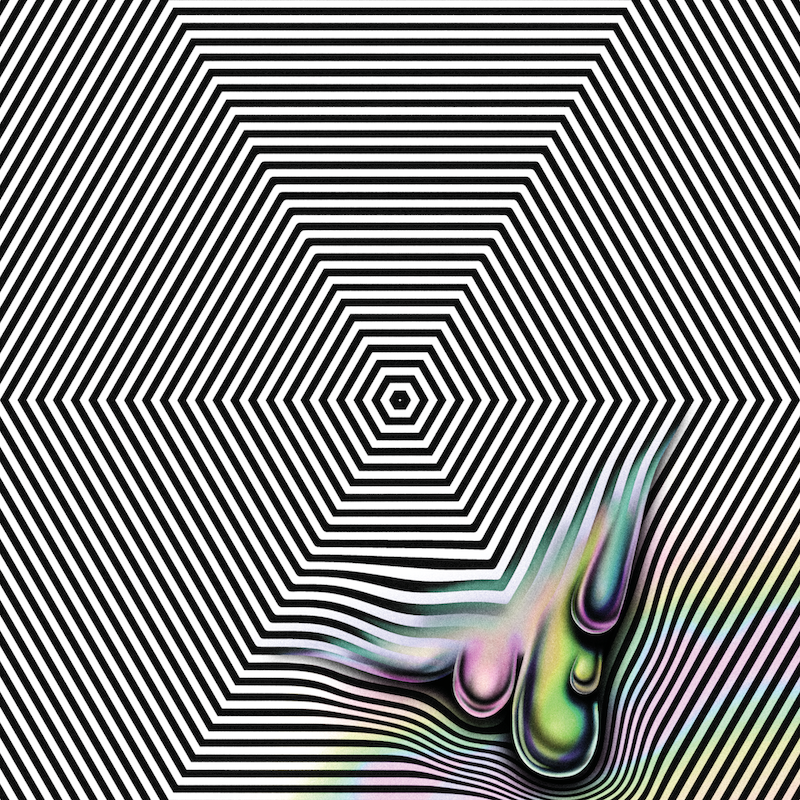
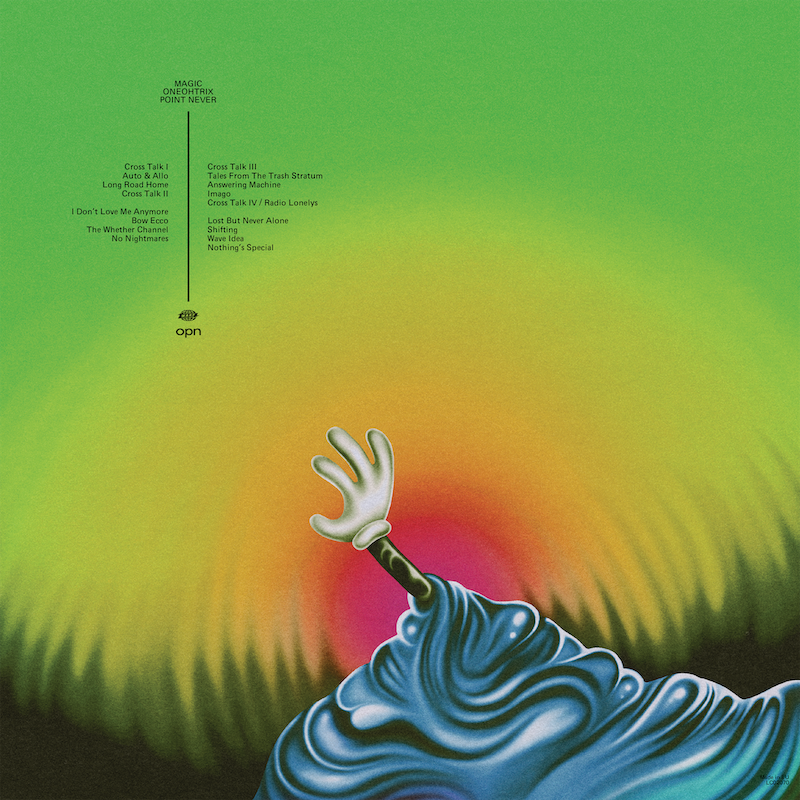
How do you approach feedback on your work?
It goes back to communication. What’s not helpful is when I don’t understand where the artist is coming from. I’m a jack of all trades, master of none, maybe master of some, so it’s all the same language in my head. There are people who have the music language, but for visuals just don’t have the language to communicate what they’re thinking.
It also depends on the music. If it’s a record that I’m into, I can come up with ideas on my own. If it’s a record I’m only going to listen to a couple times, it’s challenging to figure out what the world is. If the artist is only referencing things I’ve done in the past, that’s not as helpful as if they had an idea of their own.
It helps if they’ve gone down a rabbit hole of their own.
Yeah. I’ve said this on Twitter a couple of times. I get associated with bands because I’ve done their album covers, when really it’s somebody I’ve had two conversations with and have never met in person. It gets viewed as some grand, planned collaboration. Something where every detail is communicated by the artist and me. Really it’s kind of a crap shoot. It’s going to get to the point where bands won’t need album covers anymore because of streaming. Some bands will be better off not having one, just a photo of themselves. Album covers can be an afterthought that gets all of the meaning attached to it. It’s something that looks nice that the record is behind.
What should strong album art accomplish?
It should be inviting. You see it and ask, “What is this? What could this sound like based on this artwork?” It makes you want to know more. It’s marketing on some level—it draws people in and gets the idea of the record across in a way that is complementary and doesn’t overpower the music. That’s the best you can hope for. There’s maybe a dozen album covers I’ve done that I feel are successful in that way.
One where the artist had a clear vision was the Christian Lee Hutson album [Quitters] that just came out. That cover was based on a collage a friend of his had done of pictures from Life Magazine. They didn’t want to do copyright licensing so he said, “Can you just make your version of this?” The cover is this sad guy in a bathrobe next to a pool with lush flowers in the hills of Los Angeles at night. That’s one of the covers I’ve done in the past few years where I’m like, “Man, this is a good cover. This gets the idea of the record across directly.” You can feel it when you look at it. That doesn’t always happen. It’s a hard thing to land.
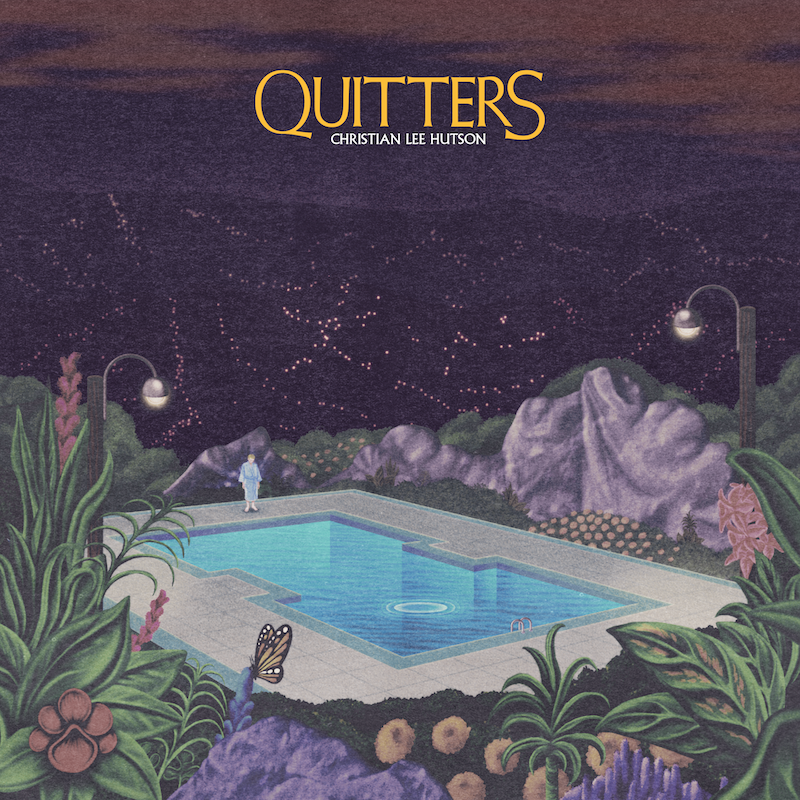
Is there a specific way you prefer to be credited?
Most of the time I’m doing the layout so I make sure to put my name in there somewhere. There’s definitely a few where I forgot. Most of the time people are good about it. It’s frustrating with Spotify where there’s not an option for credits. It’s hard to find out what label a record is on. I barely use any of those platforms, but Apple Music is supposed to be better about that. It doesn’t bother me much when bands don’t tag me in posts. By the time an album cover comes out, I’ve forgotten about it eight months ago and I’ll post it myself.
The main thing is people not crediting other artists, then people assuming it’s me. People wrongly credit me for something I didn’t do, because of a similar style. People making assumptions, it’s not the artists doing that. I want people to know my work, but I’m happy to lay back and not be in the forefront of it all. I like that being my role a lot of times. It’s just like the Wizard of Oz, behind the curtain thing.
Robert Beatty Recommends:
Ornette: Made in America (Shirley Clarke, 1985)
“Anything Can’t Happen” by Dorothea Paas (Telephone Explosion Records, 2021)
Raised By Wolves (2020, HBO)
Encyclopedic Sourcebook of UFO Religions, edited by James R. Lewis
- Name
- Robert Beatty
- Vocation
- multi-disciplinary artist, musician
Some Things
Pagination



